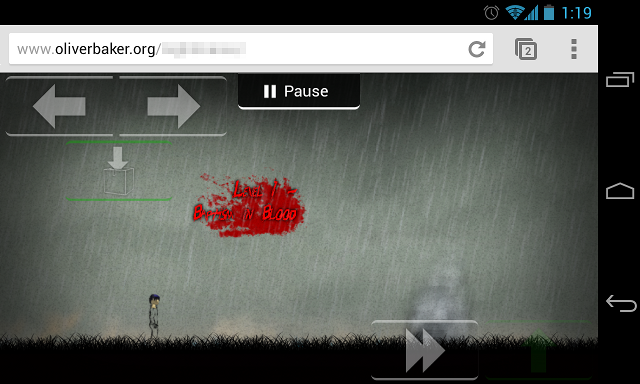My main motivation for writing this blog has been to better understand the thriller/horror genre, and to analyze the differences between film, game, and textual media. It has also served as research to help me create my horror game, "Nightmares of a 6 Year-Old Girl" (pictured).

What I've discovered:
- It is a very powerful technique to prey on the participant's sense of security in what they take for granted: that their friends and family can be trusted, that they have a safe place to live, that there is a police force they can count on, etc.
- In a largely religious global community, fear of demons, the Devil, and other anti-deities is strong, and easily exploitable.
- The key to an effective scare is in the control of tension.
- There are basic formulas inherent to the media you are working in, and knowing the formula (whether you're breaking it or adhering to it) is important in creating the best narratives.
- Each type of medium gives the participant more or less control of the story, this can be used to your advantage.
- Find inspiration in folk stories, as they are often based in truth, and have had countless re-tellings to evolve into a better story.
